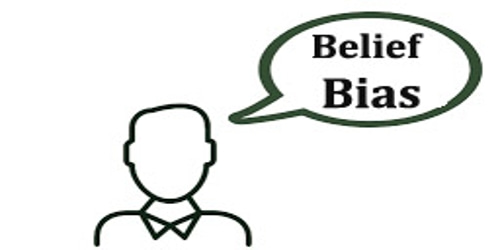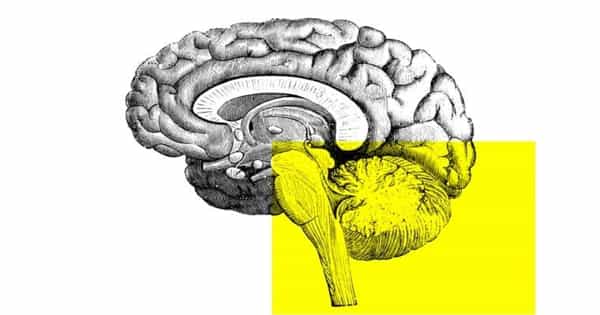Belief Bias
The belief bias is to give value, weight, strength, and importance to an argument, not based on the argument being valid but based on the conclusion that is already believed to be possible, probable or true. The Belief-Bias Effect refers to the results that happen when an individual’s own values, beliefs, prior knowledge, etc. affects or distorts, the reasoning process through the acceptance of invalid arguments or data. This can happen when an observer assumes ahead of time that they know what the results of an experiment will be and uses that belief to distort the results.
It is an extremely common and therefore significant form of error; we can easily be blinded by our beliefs and reach the wrong conclusion. Belief bias has been found to influence various reasoning tasks, including conditional reasoning, relation reasoning, and transitive reasoning.
An example of this could be a researcher studying the affect of prayer on illness. A completely open-minded researcher will gather data and then come to a conclusion based purely on the data collected, while a highly religious person may interpret the data in favor of prayer as a factor in healing, while an atheist may discount pro-prayer data.
Research – Luria (1976) asked illiterate farmers in Central Asia to reason deductively, giving them statements like: “In the far north, where there is snow, all bears are white. Novaga Zamlya is in the far north. What color are the bears there?”
The responses were such as, “I don’t know…I’ve seen a black bear, but not others. Each area has its own type of animals, you know…”
A syllogism is a kind of logical argument in which one proposition (the conclusion) is inferred from two or more others (the premises) of a specific form. The classical example of a valid syllogism is:
- All humans are mortal. (major premise)
- Socrates is human. (minor premise)
- Therefore, Socrates is mortal. (conclusion)
An example of an invalid syllogism is:
- All teenage girls are ambitious.
- Teenage girls study hard.
- Therefore, girls study hard because they are ambitious.
Typically, a majority of test subjects in studies incorrectly identify this syllogism as one in which the conclusion follows from the premises. It might be true in the real world that a) girls study and b) this is because they are ambitious.
The proper way is to use a syllogism, where the conclusion (proposition) is inferred by the argument (premise). The conclusion follows from the arguments. Deal with arguments and conclusions is the reverse of the belief bias, where the conclusion is not to put first.
Belief is powerful. Belief can be dangerous to our alignment with reality, survival, and well-being. Consciousness is the most dangerous thing in the universe: the source of good and evil.
Information Source:
















